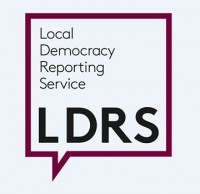 The number of journalists employed by a joint scheme between the BBC and the regional press industry should be increased from 150 to 200 as a matter of “priority”, a new report says.
The number of journalists employed by a joint scheme between the BBC and the regional press industry should be increased from 150 to 200 as a matter of “priority”, a new report says.
The News Media Association has called for an expansion of the local democracy reporting scheme, claiming it will “further improve the breadth of coverage of democratic institutions”.
Both the NMA and BBC have today published annual reviews into the scheme, which sees regional publishers employ journalists to cover local authorities using BBC licence fee money.
Ninety per cent of the roles introduced at the scheme’s launch have now been filled, with more than 30,000 stories being produced as a result.
When the scheme was first under discussion, it was suggested that the number of journalists employed under it could rise to 200 in 2019, depending on its success.
In its review, the NMA, which represents the national and regional newspaper industry, called for this expansion to be rolled-out as a matter of priority, although it did not spell out how it should be paid for.
“It is our belief that the original intention to have 200 BBC funded journalists would further improve the breadth of coverage of democratic institutions, providing coverage to the wider media industry as well as the BBC. This should be enabled as a priority of this scheme,” it said.
However the BBC’s own review stopped short of endorsing the NMA’s call for an additional 50 reporters, saying future expansion of the service will depend on both a “clear demonstration of its public value to the licence fee payer” and “identification of an acceptable funding solution.”
Both reviews touched on the issue of whether the scheme will expand into Northern Ireland, where the NMA noting “there has been some resistance to the project” and the BBC stating “differences to both the local news market and structure of local government” had to be factored in.
Three roles were created in the region on a pilot basis and the BBC is now considering “deploying a level of service” there as a result.
Both reviews also mentioned the challenges faced since the scheme’s introduction – with the BBC noting instances of publishers involved in the project using content produced by the reporters ahead of its publication to other partners.
Instances of stories not being shared in a timely fashion, insufficient productivity and incorrect attribution were also noted.
The BBC said it has “worked closely with the supplying partners on these issues and “progress has been made in most areas”.
It is also considering whether allow supplying partners to insert pre or post-roll advertising on videos shared by the news hub, another facet of the project which allows regional publishers to make use of BBC video content online.





 Follow HTFP on Twitter
Follow HTFP on Twitter
I bet the big media companies are keen to have 50 extra externally funded reporters given to them!
The first rule of the service should be that employers commit not to reduce the headcount of their editorial staff for the period in which they have an LDRS reporter with them.
Report this comment
Please keep ’em in house. Please. They need to be totally separate to any publisher for the benefit of the whole industry and the public.
Oh and they should stop writing council press releases – that just makes them a free resource for publishers. Let them do some proper reporting.
Report this comment